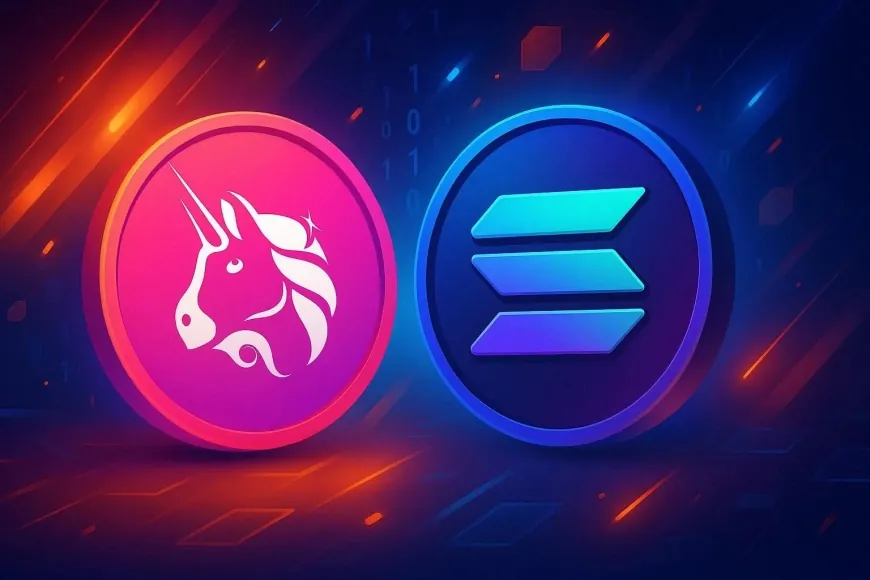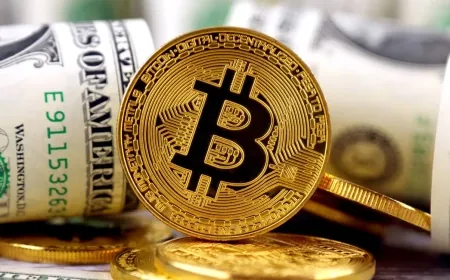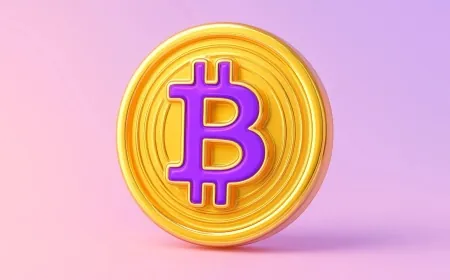Uniswap Now Supports Trading of Solana Tokens
Uniswap adds Solana support on its Web App. Users can trade over 1 million Solana tokens alongside Ethereum in a single platform.

Uniswap, the world’s largest decentralized exchange, has officially added support for Solana (SOL), marking the platform’s first integration with a blockchain outside the Ethereum ecosystem. The update allows users to trade Solana-based tokens directly through the Uniswap Web App for the first time, expanding the platform’s reach beyond Ethereum’s network.
Through the integration with the Jupiter API, Uniswap users now have access to more than one million Solana tokenswithout leaving the app. Traders can connect Solana-compatible wallets to swap these tokens alongside Ethereum assets and other supported networks, streamlining activity that previously required multiple platforms. In its announcement, Uniswap emphasized that the addition of Solana addresses a longstanding issue in decentralized finance: fragmented trading experiences across different blockchains.
Prior to this integration, Solana users primarily relied on native decentralized exchanges such as Jupiter, Orca, and Raydium. Managing assets across Ethereum and Solana often required moving funds through bridges or multiple interfaces, creating friction for traders seeking efficiency and speed. By incorporating Solana, Uniswap enables its six million active users to access a network with a monthly DEX trading volume exceeding $140 billion, effectively connecting two of the largest DeFi ecosystems.
Unlike its approach on Ethereum, Uniswap will not establish independent liquidity pools on Solana. Instead, it will act as a front-end aggregator, routing trades through Solana’s existing infrastructure. This method allows faster and lower-cost transactions while avoiding duplicate liquidity, reflecting a practical strategy to integrate cross-chain activity without creating redundant systems.
Uniswap has confirmed that the Solana rollout is only the first phase of broader cross-chain ambitions. The company is actively developing cross-chain swap functionality, bridging tools, and full wallet support, which would allow users to move assets across multiple blockchains without leaving the Uniswap interface. Analysts view this as a significant step toward more unified trading access within the DeFi sector, which has long been segmented across individual networks.
By bridging Ethereum and Solana, Uniswap is creating a platform where users can interact with two of the largest decentralized finance ecosystems from a single interface. The move is expected to simplify trading for professional and retail users alike, reduce technical barriers, and expand the accessibility of Solana’s liquidity. Industry observers note that this type of integration reflects a broader trend in decentralized finance, as leading platforms increasingly focus on interoperability rather than siloed ecosystems.
The integration also demonstrates how Uniswap is adapting its business model. By aggregating existing Solana liquidity rather than creating new pools, the platform avoids costly replication while expanding service offerings. For traders, this means access to Solana assets without the need to learn new interfaces or manage multiple accounts. For Uniswap, it provides a scalable way to broaden its reach into multi-chain activity while maintaining efficiency and cost-effectiveness.
With the Solana integration, Uniswap allows its users to trade assets across both Ethereum and Solana from a single interface. The platform uses Solana’s existing liquidity via the Jupiter API instead of creating new pools, providing faster and more cost-efficient trades. This is the first instance of a major Ethereum-based DEX supporting another blockchain at scale, giving users access to Solana’s $140 billion monthly DEX volume.
Also Read: Pig Butchering Crypto Scams: How Criminals Stole $15B from Global Investors































































